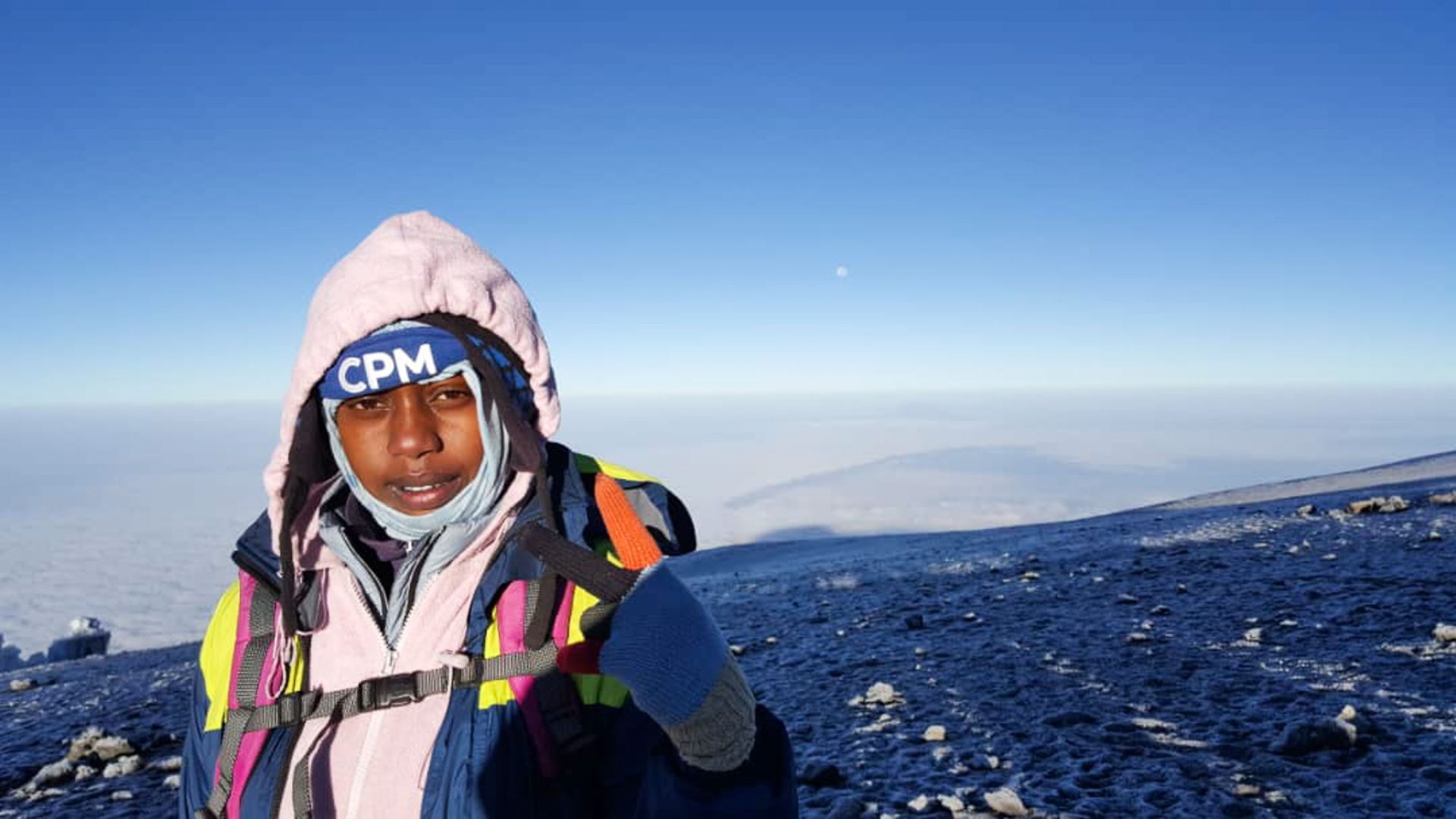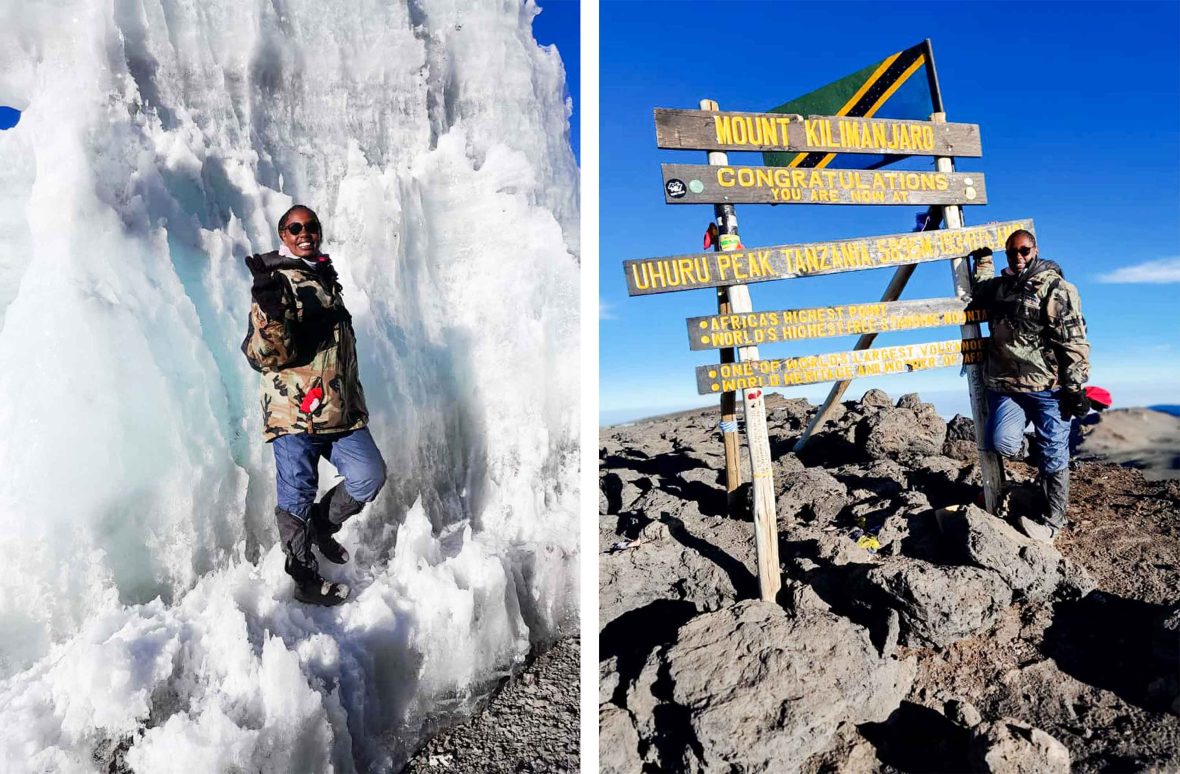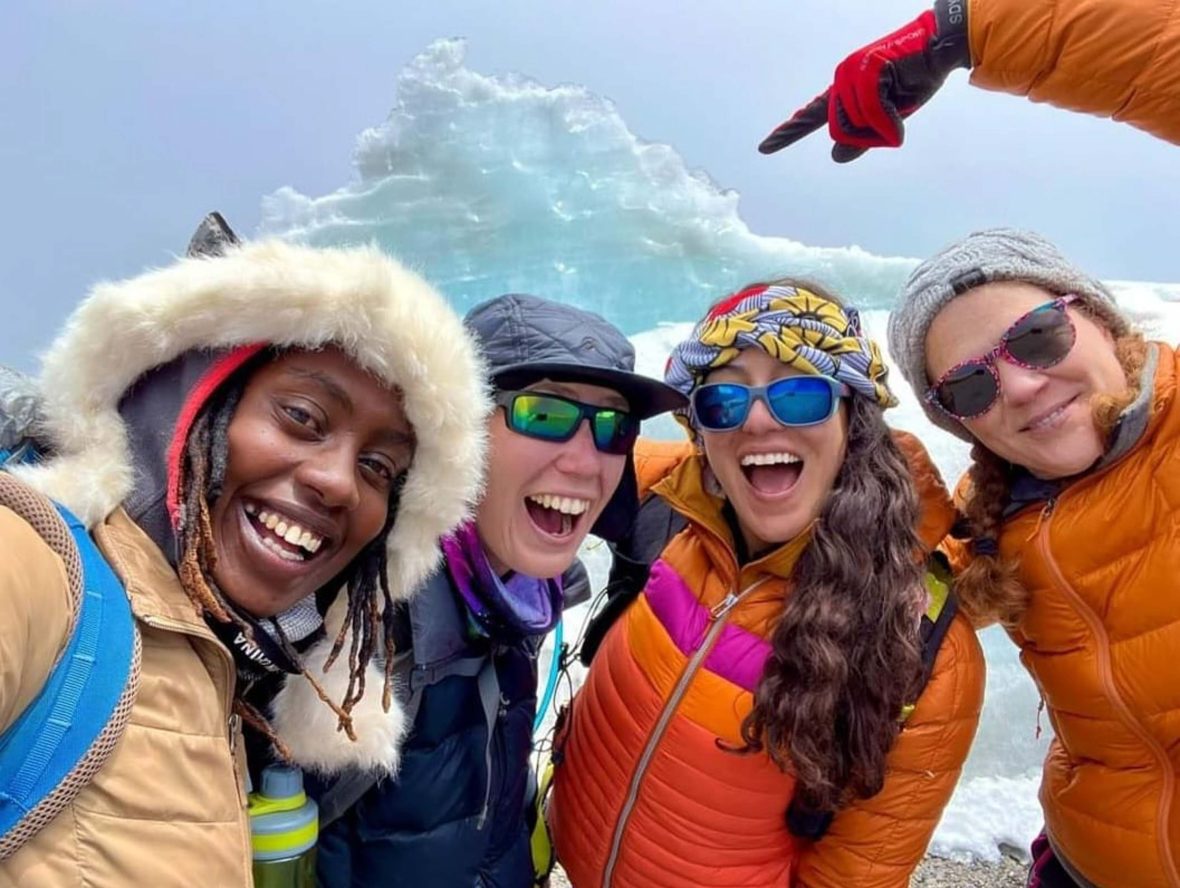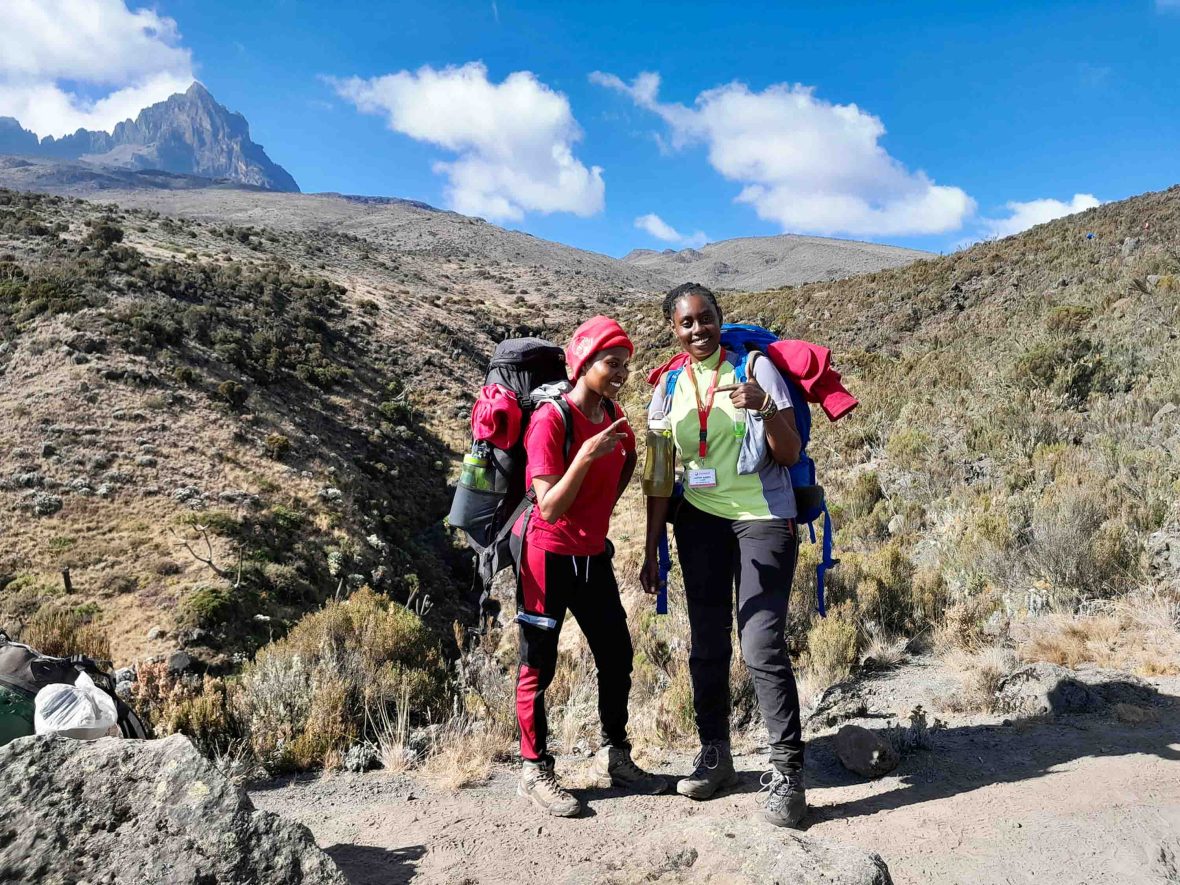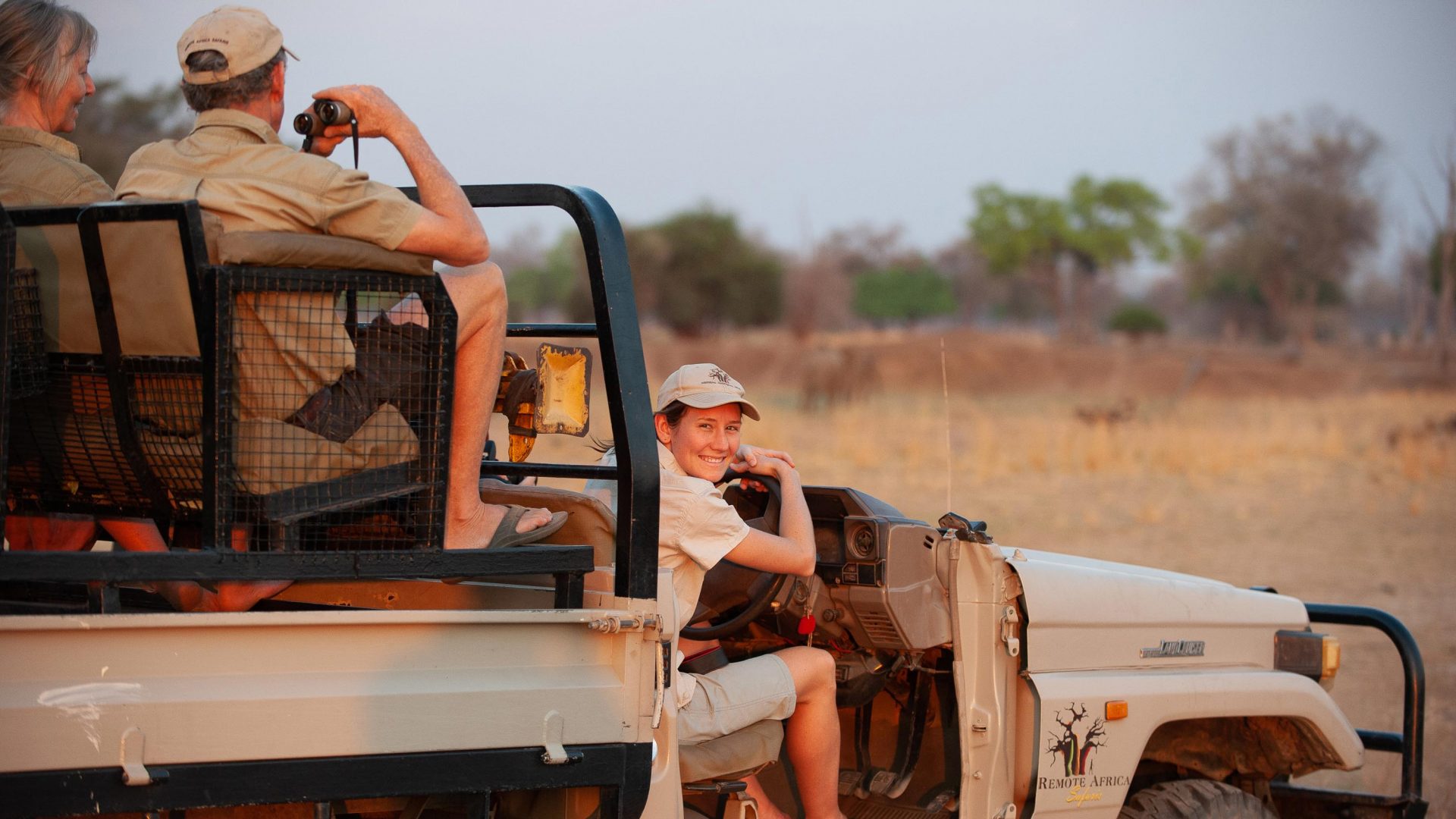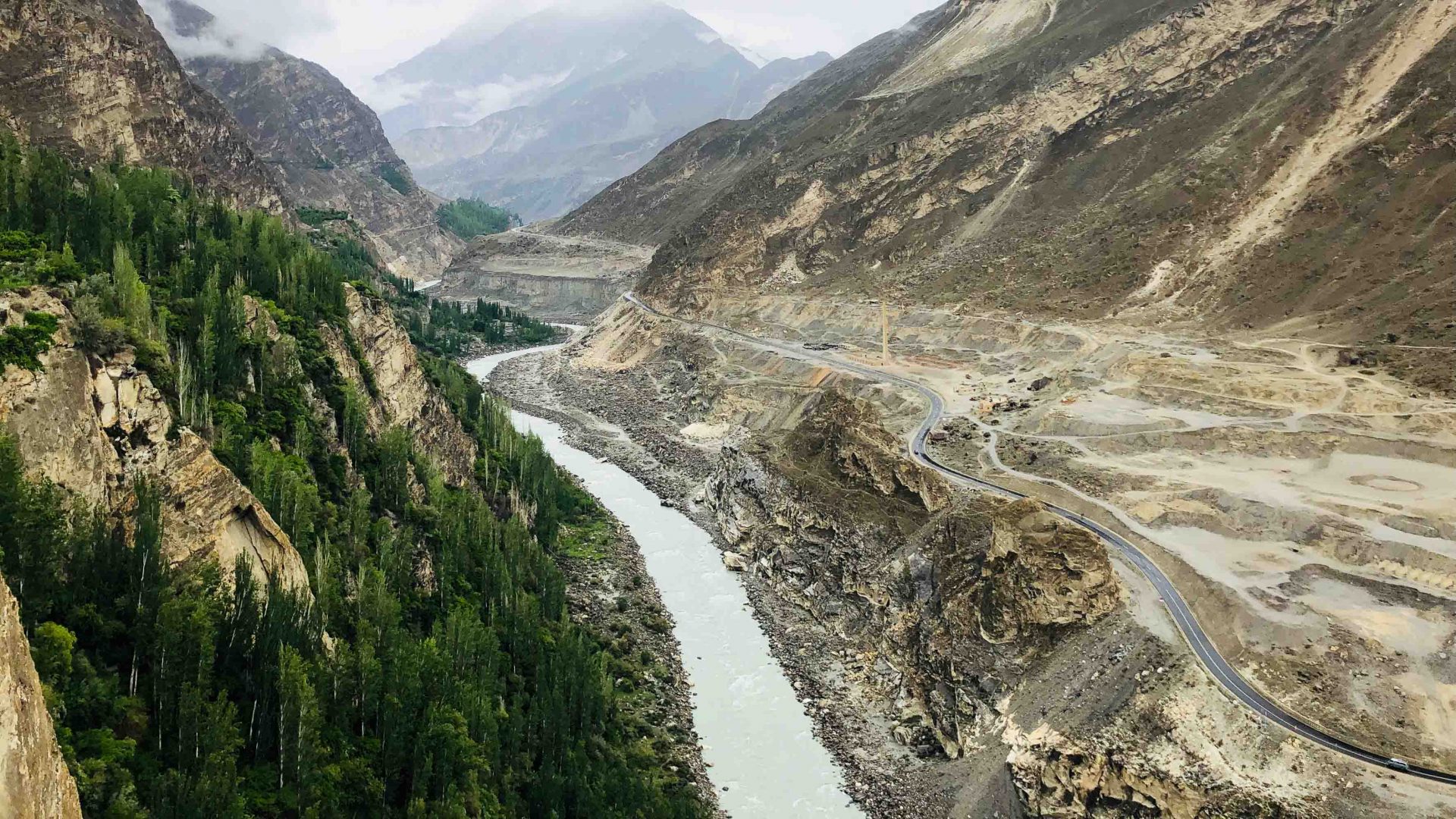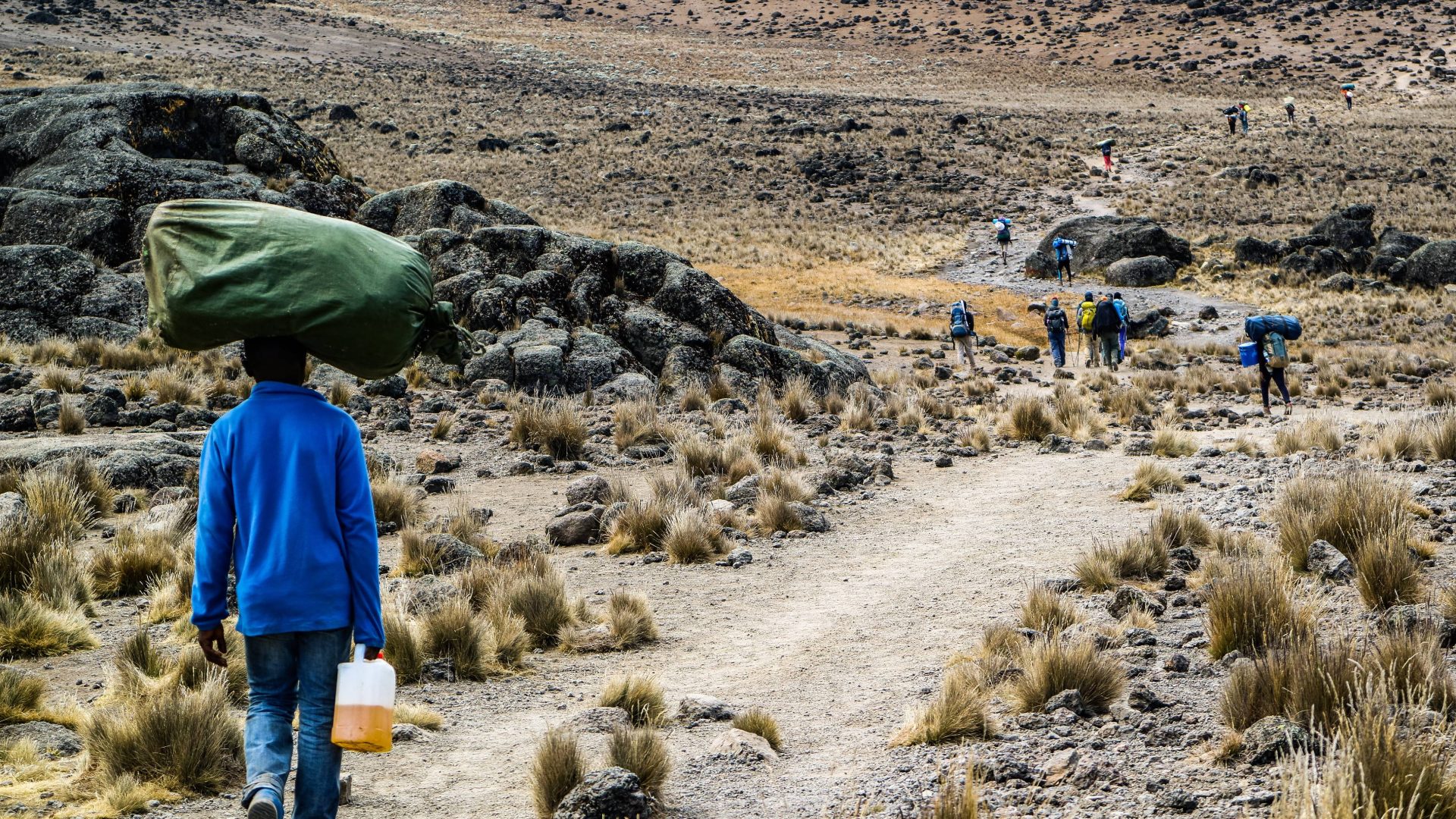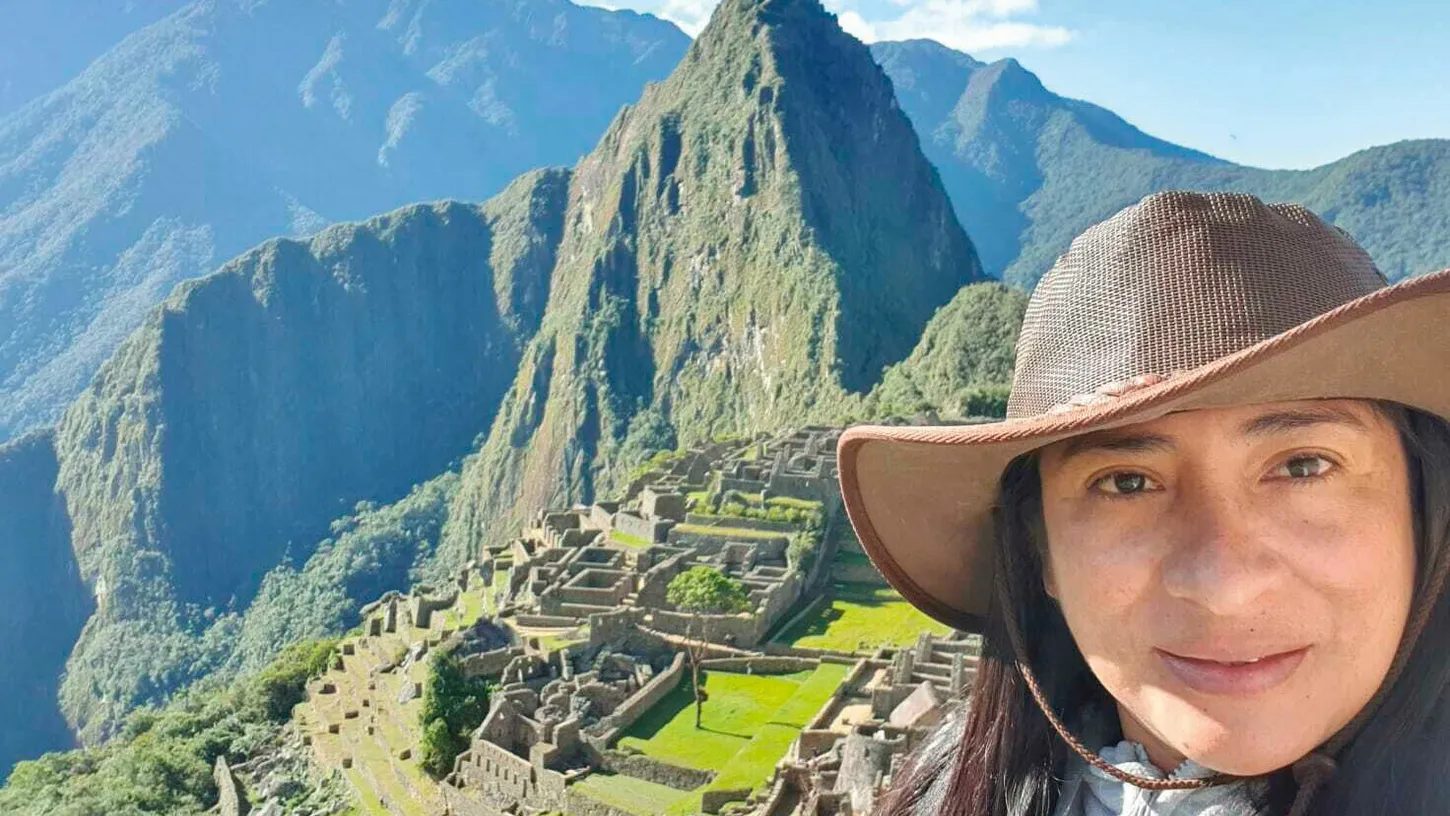In 2020, only 18 percent of people working on the heather-covered slopes of Mt Kilimanjaro in Tanzania were women. Ten years ago, that number was zero. One of these women is the trailblazing Chagga tour leader, Asifiwe Makere.
“When I first said to my family, ‘I want to start climbing’ they were like, ‘Are you sure?’” Asifiwe recalls. “We don’t see many females around here who try to climb Kilimanjaro. Maybe because, in our village, you can go outside and actually see the mountain. But I told my family, ‘You know what? I’m sure. I’m sure I can do it.’”
Asifiwe grew up in Mosha, in the shadow of Africa’s tallest peak. In patrilineal tribes like the Chagga, most women work in farming and agriculture—two professions that have become much more difficult due to melting snow caps and the effects of climate change. Opportunities are scarce, which is why some Tanzanian women, like Asifiwe, are turning to traditionally male-dominated industries such as tourism.
